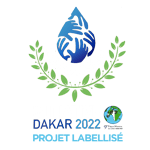
WATA technology allows the production of chlorine (sodium hypochlorite) useful for water treatment. WATA contributes to Sustainable Development Goal 6: to ensure universal and equitable access to safe drinking water at an affordable cost, by integrating the participation of the local population in the management of water and its treatment.
WATA includes a range of products for different uses:
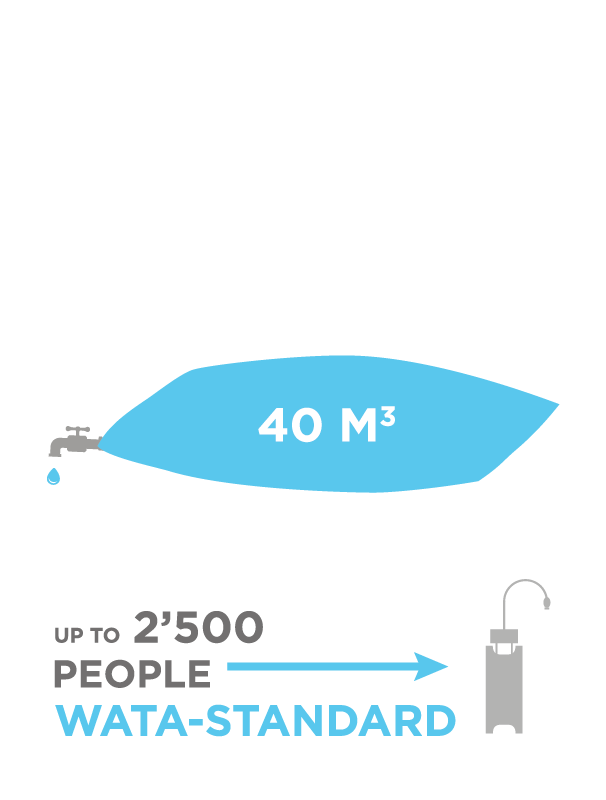
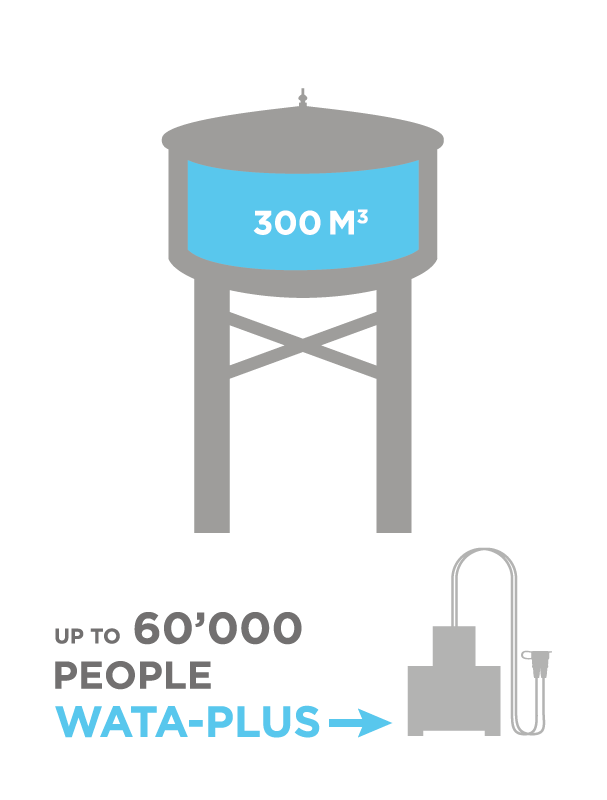
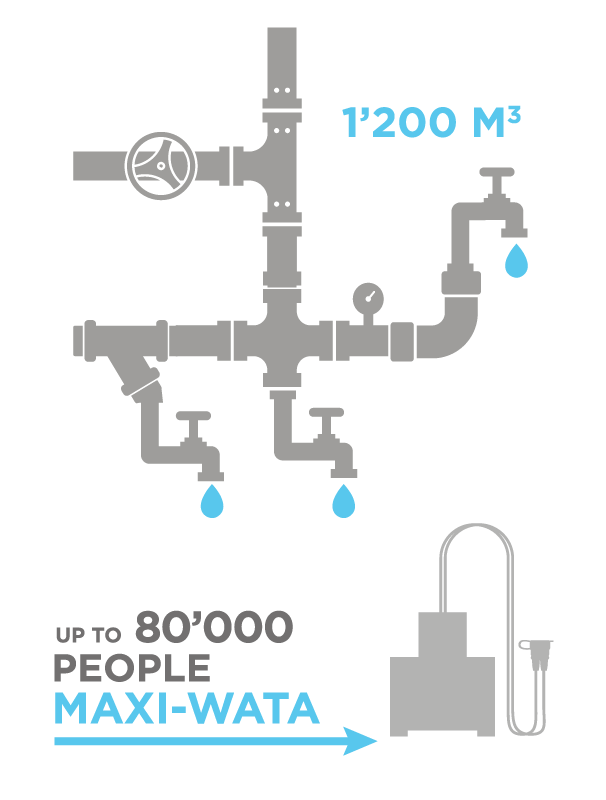
Local
- On-site production
- Quantity and concentration of chlorine adapted to the needs
- Solar power systems
Simple
- Compact and robust technology
- Easy to use
- Operator training
- Free demonstration videos
Durable and sustainable
- Limits pollution from logistics
- Long-term investment:
- + 10 years of possible productions
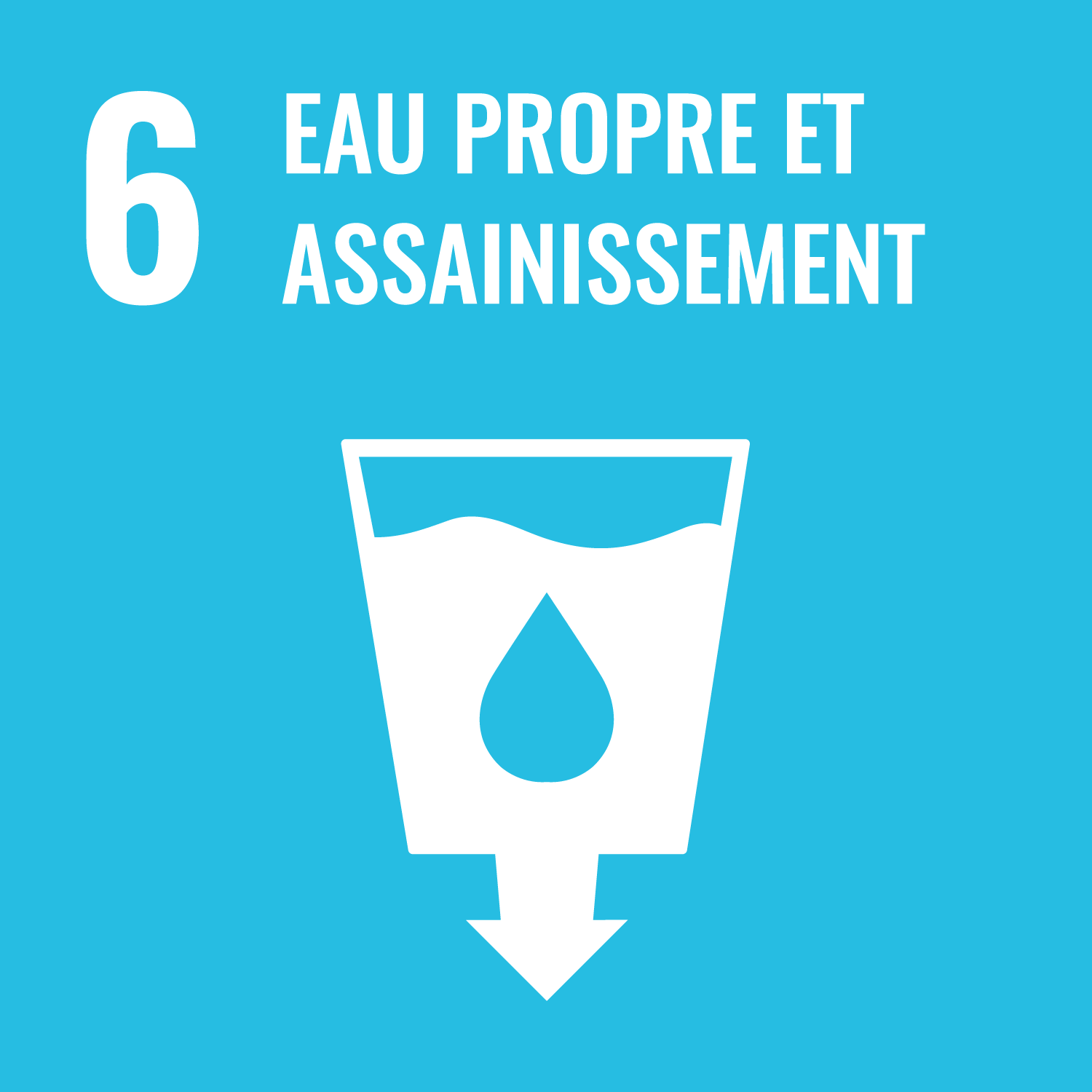

WATER TREATMENT IN NETWORKS
Drinking water supply systems (DWSS) bring water from boreholes or catchments to various distribution points: standpipes or private taps. Different sizes exist depending on the population served and the context, usually peri-urban or rural.
In many countries water is likely to be contaminated with micro-organisms at various stages of the distribution process:
- At source, especially if it is surface water or if it comes from an unprotected springs
- When stored in the water tower
- During its transit through the pipes
- During transport in household containers (e.g. jerrycans)
- When storing in households
Chlorine
99% of bacteria and viruses in water are eradicated by chlorine. This disinfectant, the most commonly used in the world, is the only water treatment process with a persistent effect. Indeed, it avoids re-contamination of the water during distribution and storage*.
*WHO, 2017, Guidelines for drinking water quality – Fourth edition – p. 36
WATA TECHNOLOGY
Because our solution is simple and localized, it removes the logistical headache of transporting chlorine, as well as the insecurity of irregular supplies.. Sodium hypochlorite replaces chlorine powder (HTH) with local production and this reduces operating costs while increasing autonomy.
In addition, the WataBlue reagent is a simple way to measure the amount of chlorine residual in drinking water.
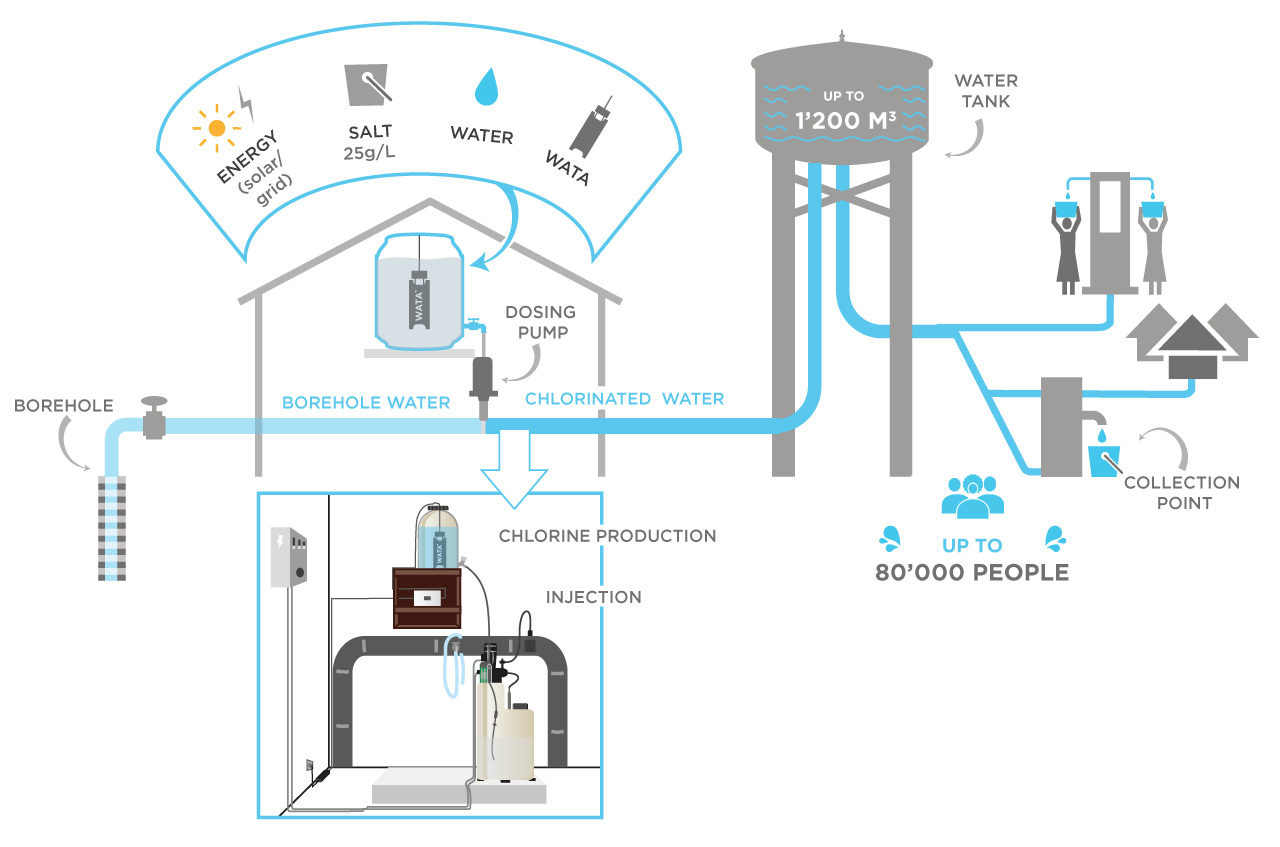
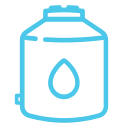
WATER TREATMENT
OUTSIDE THE NETWORK
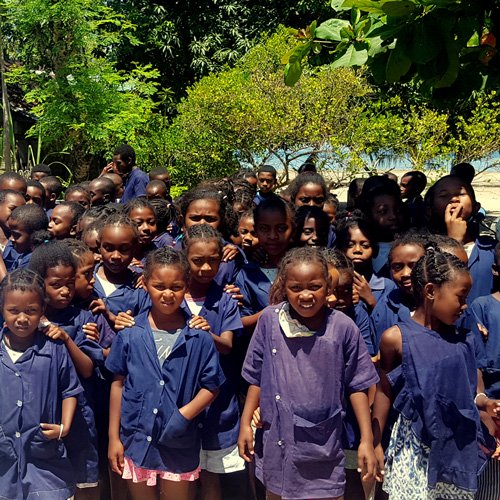
WATER TREATMENT AT SCHOOL
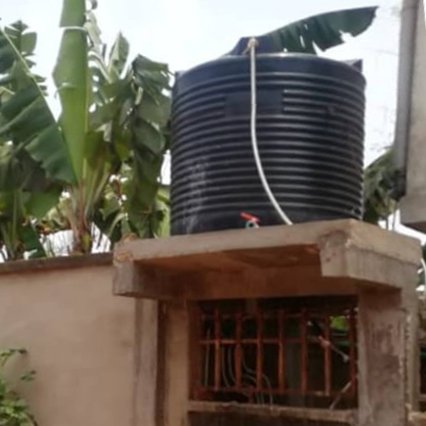
PRIVATE TANKS
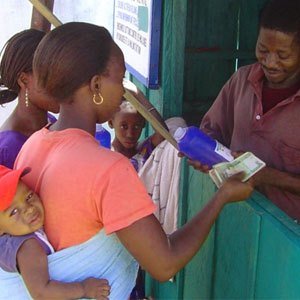
SOCIAL ENTERPRISE
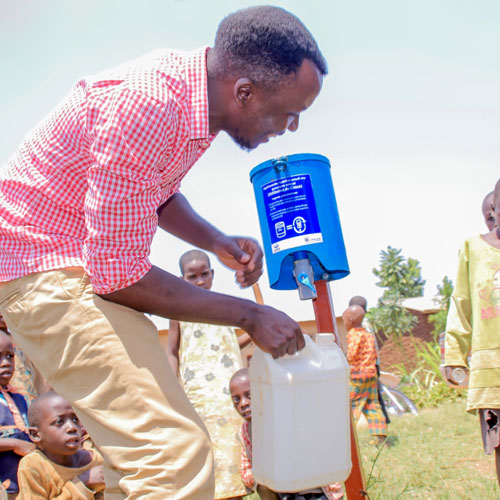
CHLORINE DISPENSERS

WATER TREATMENT IN HUMANITARIAN EMERGENCIES
84 MILLION REFUGEES* WORLDWIDE
When populations are displaced by natural disasters or conflicts, access to clean water must be provided quickly. Compact and robust, the WATA device can be easily deployed in humanitarian emergencies, even in hard-to-reach areas. The autonomous production of chlorine resolves the common problem of unstable supply chains of chlorine in crisis situations. It is a sustainable and environmentally friendly solution.
*Source: UNHCR (2021)
Follow a Swiss Humanitarian Aid Unit (SHA) team deployed to Mozambique after the floods caused by Cyclone Idai in March 2019.
The priority was to provide drinking water for the displaced population and to prevent the spread of cholera from water infected with feces. Thanks to WATA, chlorine produced on site disinfected water of E. coli germs. After the humanitarian intervention, the technology was handed over to local organizations to ensure the continuity of the drinking water supply for displaced people.
OUR LATEST ACHIEVEMENTS
OUR SERVICES
FIELD SURVEYING AND SIZING
PRODUCTION AND LOGISTICS
TRAINING AND IMPLEMENTING
MONITORING AND EVALUATION
FIELD SURVEYING AND SIZING
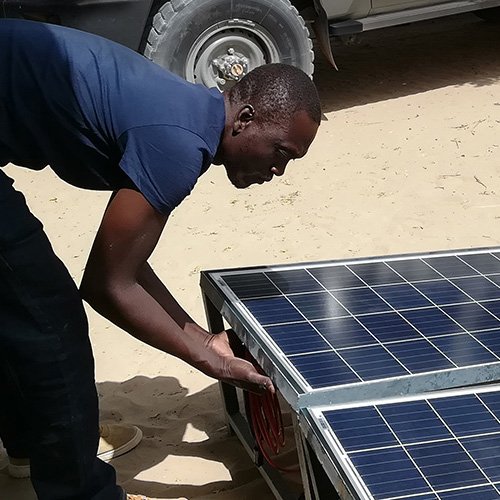
PRODUCTION AND LOGISTICS
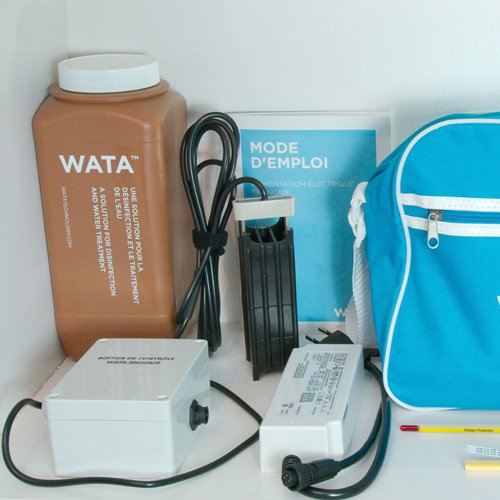
TRAINING AND IMPLEMENTING
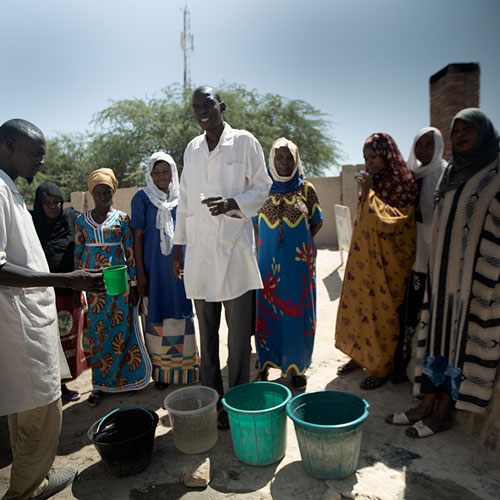
MONITORING AND EVALUATION




